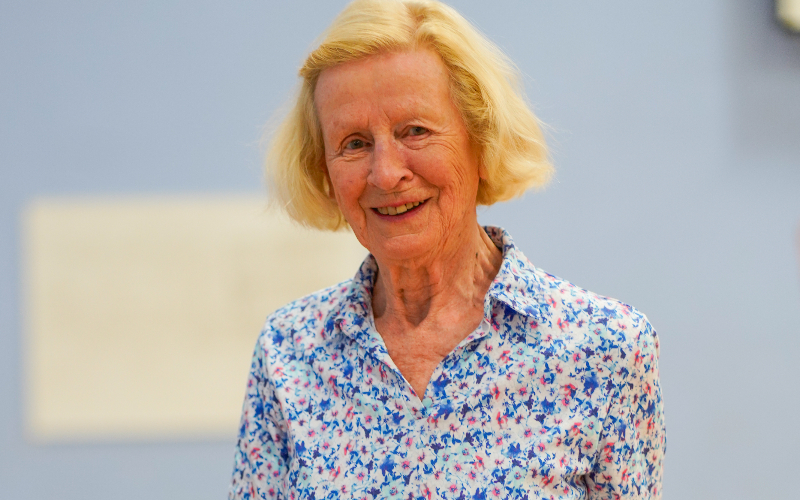
Both John Walton and Sheffield Social Badminton Club have come a long way in the last 12 years.
Walton, now 62, was diagnosed with ME (chronic fatigue syndrome) in his early 40s but has been reinvigorated by the nation’s favourite racket sport, becoming chair of the club and overseeing its rise from a handful of regular players to the three-nights-a-week operation it has become.
The club remain true to its roots as a pay-as-you-play set-up to ensure the club is as inclusive as possible and often welcomes 30 players to its sessions, which are split between competitive and social players. All are welcome, irrespective of age, gender, ethnic background or financial circumstances.
Each of them pay just £3 to take part in a two-hour session at High Storrs School while some have taken up the offer of coaching, much of which is provided by Lol Morris – father of GB’s Para badminton coach, Richard.
It is all a far cry from the club’s early days, as Walton explained.
“We started under one of Sheffield City Council’s ‘get active’ programmes but before long, it was over to us,” he said.
“We stumbled on for a couple of years and eventually there were a few evenings where there were only four people.
“We moved to another school and one of our members, Bogdan Tutoveanu, who’s an engineer, dragged along a lot of co-workers to join in. We had a load of people come along that way.
“Five years ago, we set up a Facebook page and before too long, we were having to turn people away, we were just too busy.
“The network has built up and we have remained as popular as we can possibly be.”
The age range at Sheffield Social BC is particularly impressive, with competitive players on the younger side balanced out by a regular intake of those keeping themselves active in their advancing years – with one particularly notable example.
“We have a good number of people who are in their 70s and we do now have a 90-year-old, Carmel Rogers, who comes twice a week,” he said.

“It’s not just that she’s playing at 90, she didn’t even start until she was 70. That speaks volumes that it’s never too late to start.
“She hadn’t played any sport since playing hockey at school but tried badminton because she reckoned it was something she could play without needing to be strong in the arm.
“She’s a clever lass, she picks things up quickly and she’s lethal at the net.
“She is a character who is full of personality – an acquaintance once told her ‘you don’t act your age, Carmel!’. When we first started 12 years ago, it was me, Bogdan and her who pushed things forward.
“Everyone looks up to her, she’ll chat to anybody, her daughter-in-law comes along as well and is now on the committee. She is a complete inspiration.”
As with clubs across the country, Sheffield Social BC found things hard during the Covid-19 pandemic but used Badminton England guidance to get back on court ‘much sooner than we would have done otherwise’.
The future looks bright in the Steel City and Walton is delighted he has rediscovered a sport he played in his younger years, which he cites as key to transforming his outlook.
“For the first 10 years after I was diagnosed with ME, I was struggling to do anything physical,” he said. “But the last 10 years have been fantastic.
“I’m looking towards retirement and my wife and I are planning long-distance walking with tents on our backs.
“Although fatigue is still very much a thing, I can now exercise and I largely put that down to badminton.
“It was something I built up gradually, I now play up to three or four times a week.
“The coaching was great and still is, I still go and get coached by Lol and his team – that has not just been a physical learning exercise but a mental one too. I enjoy learning of any sort.
“I put my pretty good recovery to ME largely down to badminton.”

